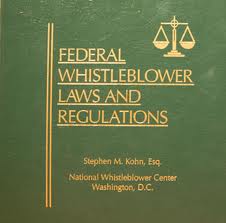Note: This is a guest post from labor and employment law attorney Amy E. Newsom. Amy contributes articles to our blog on legal issues affecting employers.
 All employers, regardless of the number of employees, need to be aware of the broad anti-retaliation and whistleblower protections included in the Patient Protection and Affordable Care Act (ACA).
All employers, regardless of the number of employees, need to be aware of the broad anti-retaliation and whistleblower protections included in the Patient Protection and Affordable Care Act (ACA).
Under the ACA, an employer may not retaliate against an employee who:
- Is receiving a tax credit or cost sharing reduction while enrolled in a qualified health plan through the exchange
- Is or has reported an actual or reasonably believed violation to the employer, federal government, and/or attorney general for the state
- Testified or participated in a proceeding concerning violation of the ACA
- Objected to or refused to participate in an activity that he or she reasonably believes to be a violation of the ACA
The definition of “employee” under the ACA includes past employees and applicants.
Employers who are not required to provide health insurance under the ACA may have a large percentage of their workforce participating in a plan on the exchange due to the individual mandate. Any adverse employment action against these employees could be perceived as retaliation, especially if the legitimate reasons are not well documented. Also, close timing of any adverse employment action and any protected activity (see #1-4 above) can be circumstantial evidence of retaliation. Adverse employment actions are widely defined as: firing, laying off, blacklisting, demoting, denying overtime, discipline, denying benefits, failure to hire or rehire, intimidation, making threats, reassignment affecting promotion prospects, and reducing pay or hours.
If an employer is not careful in how it handles these employment decisions, it could be exposed to serious liability (not to mention legal costs) under the ACA.
Here are a couple of pointers for employers:
- Any and all evidence supporting a legitimate employment action should be well documented. Such evidence will assist employers in demonstrating that the employment decision was made for a legitimate, non-retaliatory reason.
- Segregate the information. Knowledge of which employee is participating in the exchange should be tightly controlled through a written procedure. If possible, the decision-makers should not be provided access to information on which employees are participating in the exchange or which employees may have made complaints about non-compliance.
It is not a bad idea for employers to consult with an attorney prior to making any employment decision that could be considered adverse. Evaluating company policies and procedures now could prevent or mitigate future litigation.
Amy E. Newsom is a graduate of Louisiana State University Law School and the owner of Newsom Law Firm. Amy has specialized experience representing employers and state agencies in labor and employment litigation. This article is for general informative purposes only. It is not intended as a substitute for professional counsel and should not be used as such.

















